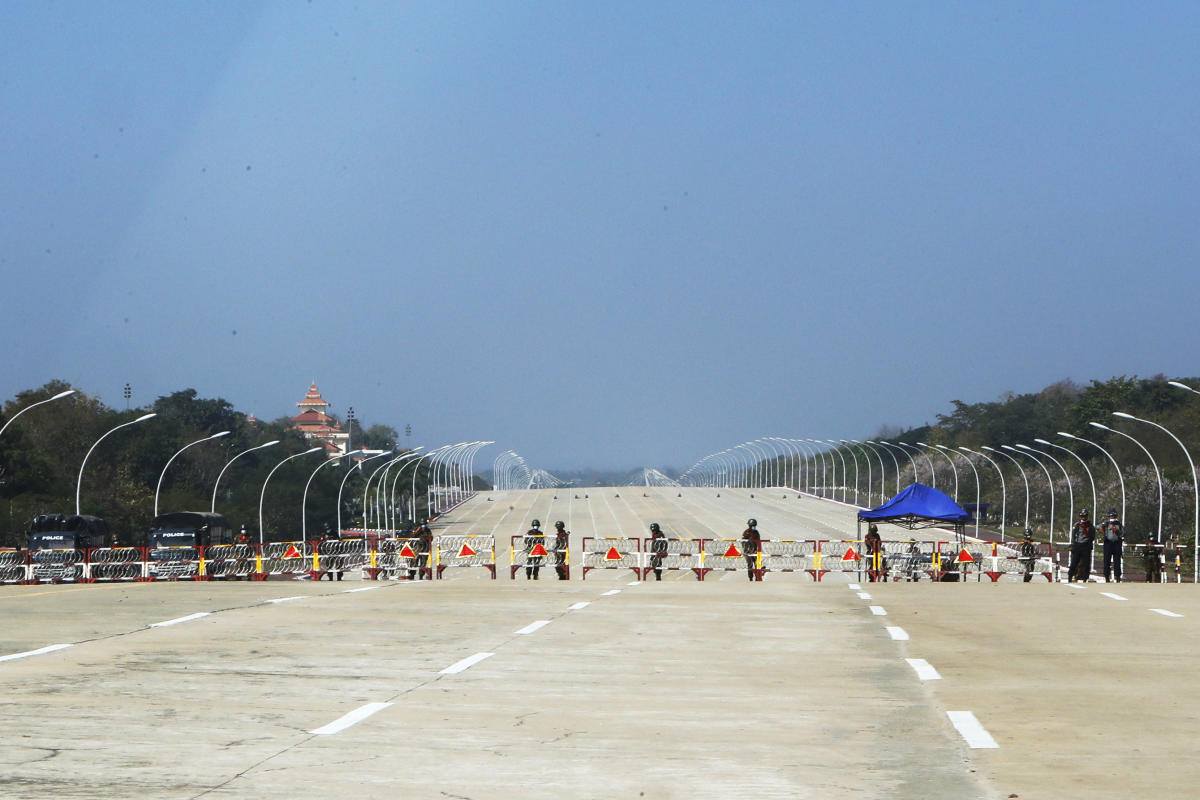Assistant Secretary-General for political affairs Khaled Khiari told the U.N. Security Council that “the civilian toll keeps rising” amid reports of indiscriminate bombing by Myanmar’s armed forces and artillery shelling by various parties.
The nationwide armed conflict in Myanma r began after the army ousted the elected government of Aung San Suu Kyi in February 2021 and suppressed widespread nonviolent protests that sought a return to democratic rule.
Thousands of young people fled to jungles and mountains in remote border areas as a result of the military’s suppression and made common cause with ethnic guerrilla forces battle-hardened by decades of combat with the army in pursuit of autonomy.
Despite its great advantage in armaments and manpower, the military has been unable to quell the resistance movement. Over the past five months, the army has been routed in northern Shan state, is conceding swaths of territory in Rakhine state in the west, and is under growing attack elsewhere.
Myanmar’s main pro-democracy resistance group said Thursday its armed wing launched drone attacks on the airport and a military headquarters in the capital, Naypyitaw, but the ruling military said it destroyed the drones as they attacked. It wasn’t possible to independently verify most details of the incident, but the military’s acknowledgement that it had taken place in one of the country’s most heavily guarded locations will be seen by many as the latest indication that it is losing the initiative.
Khiari did not mention the attack but said the National Unity Consultative Council — formed after the 2021 military takeover to promote a return to democracy and comprising ethnic, political, civil society and resistance groups — convened its Second People’s Assembly on Thursday “to further define their common vision for the future of Myanmar.”
He singled out the fighting between the Arakan Army and the military in Rakhine State, Myanmar’s poorest, which he said “has reached an unprecedented level of violence.”
“The Arakan Army has reportedly gained territorial control over most of central Rakhine and seeks to expand to northern Rakhine” where many minority Rohingya Muslims still live, he said.
The Buddhist Rakhine are the majority ethnic group in Rakhine, which is also known by its older name of Arakan, and have long sought autonomy. They have set up their own well-trained and well-armed force called the Arakan Army.
Members of the Rohingya minority have long been persecuted in Buddhist-majority Myanmar. About 740,000 fled from Myanmar to refugee camps in Bangladesh when the military in August 2017 launched a brutal counterinsurgency campaign in response to attacks in Rakhine by a guerrilla group claiming to represent the Rohingya.
Khiari urged all parties in Rakhine to support the Rohingya, who are caught in the middle of the conflict and continue to experience “significant restrictions” on their freedom of movement as well as denial of citizenship and disproportionate vulnerability to abduction or forced recruitment.
The crisis continues to spill over the borders and added that conflicts in key border areas have weakened security, Khiari said. The breakdown in the rule of law has enabled illicit economies to thrive, with criminal networks preying on vulnerable people with no livelihoods.
“Myanmar has become a global epicenter of methamphetamine and opium production, along with a rapid expansion of global cyber-scam operations, particularly in border areas,” he said. “What began as a regional crime threat in Southeast Asia is now a rampant human trafficking and illicit trade crisis with global implications.”
Senior U.N. humanitarian official Lisa Doughten said the ongoing escalation has left 12.9 million people — nearly 25% of Myanmar’s population — without enough food, stressing that children and pregnant women face malnutrition.
“Across Myanmar, the humanitarian community estimates that some 18.6 million people will need humanitarian assistance in 2024 — a nineteen-fold increase since February 2021,” she said.
Doughten said the health system is also in turmoil, with medicines running out. She appealed for urgent funding to assist millions in need, saying the 2023 appeal for $887 million was only 44% funded, causing 1.1 million people to be cut off from aid.
Both Khiari and Doughten echoed U.N. Secretary-General Antonio Guterres’ call for a unified international response to the escalating conflict, and for neighboring countries especially to use their influence to open humanitarian channels, end the violence, and seek a political solution.
Khiari said Guterres intends to appoint a new U.N. special envoy for Myanmar soon to engage with the 10-member Association of Southeast Asian Nations, or ASEAN, and other key parties toward those goals.
Britain’s U.N. Ambassador Barbara Woodward told the council, however, that “the Myanmar military refuses to engage meaningfully with international efforts to reach a peaceful solution to the crisis.”
But she stressed, “We will not allow Myanmar to become a forgotten crisis.”
Calling Myanmar “our longstanding friend and close partner,” Russia’s U.N. Ambassador Vassily Nebenzia objected to the meeting, saying the country doesn’t threaten international peace and security.
He accused Western nations of supporting armed opposition groups and destabilizing Rakhine and camps for the displaced “for the advancement of their own geopolitical concerns in the region.”
